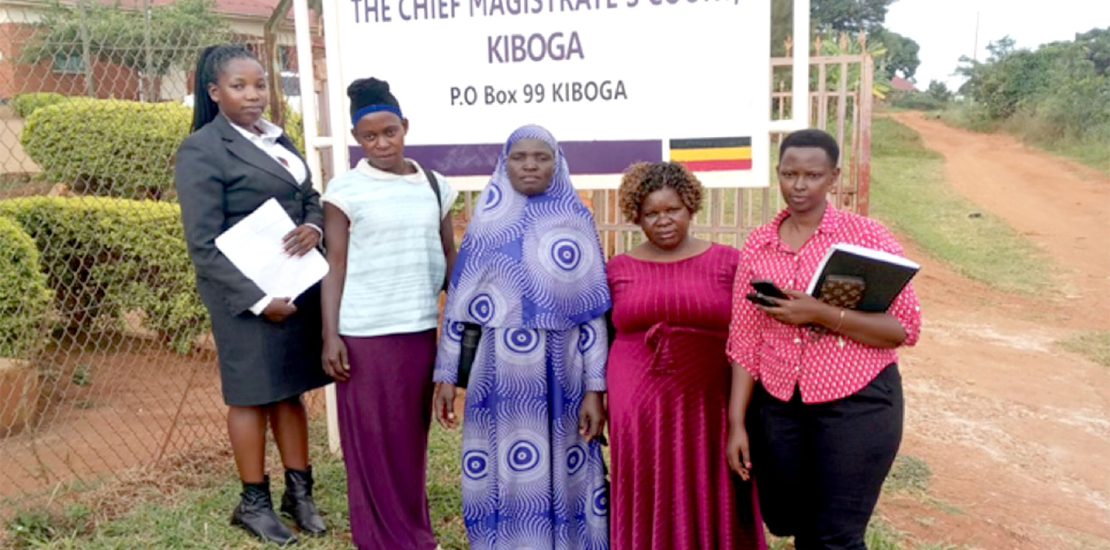CEFROHT’s Pro Bono Legal Services Secure Land Rights and Food Security for Vulnerable Communities in Uganda
- June 17, 2025
- Posted by: CEFROHT Reporter
- Categories: News Updates, Social Justice

In Uganda, land is more than just property—it is a lifeline. For 80% of homesteads, agriculture is the primary source of both food and income, according to the Ministry of Agriculture’s annual survey. Yet, when land rights are threatened, families face severe food insecurity. The Center for Food and Adequate Living Rights (CEFROHT), through its Social Justice and Strategic Litigation Program, is bridging the justice gap by providing pro bono legal services to vulnerable communities in Kyakwanzi, Kiboga, and Mukono, ensuring their right to land—and, by extension, their right to food—is protected.
The Link Between Land Rights and Food Security
CEFROHT’s work is rooted in the understanding that land ownership is intrinsically tied to food security. Historically, Uganda’s patriarchal legal framework has disproportionately disadvantaged women, children, and persons with disabilities in land disputes. For instance, the repealed Section 27 of the Succession Act recognized only male heirs—a provision that was amended just two years ago, in 2022.
Despite women making up 70% of the agricultural workforce, they often face systemic barriers to land ownership. CEFROHT’s pro bono legal interventions aim to dismantle these barriers, ensuring equitable access to land and resources.
Justice Through the Human Rights Enforcement Act
As a government-certified legal aid clinic, CEFROHT leverages the Human Rights Enforcement Act to simplify legal processes, making justice more accessible to indigent persons. The organization collaborates with Uganda Police, District Community Coordinators (DCCs), and local council leaders to raise awareness and resolve land disputes efficiently.
Success Stories: Restoring Land, Restoring Livelihoods
1. Namugabwe Madinah vs. Madiba Monde & 3 Others
Madinah, a widow from Kiboga, endured violence and destruction when her brother-in-law attempted to seize her land. After he burned down her home and assaulted her, CEFROHT stepped in.
Despite failed mediation, CEFROHT successfully argued in court that Madinah and her children had a legal right to the land. The court ordered the land to be divided among all the deceased’s children, securing Madinah’s six children their rightful share. Today, she and her family have been restored to their land.
2. Namuddu Grace vs. Ndooli Julius
Grace, a single mother, took a loan to cultivate seven acres of maize—only for the respondent’s cattle to destroy her entire farm. When the respondent refused compensation, Grace was forced to sell her house to repay the loan.
CEFROHT filed a civil suit under the Human Rights Enforcement Act, arguing that her right to livelihood and land had been violated. Though initially dismissed on a technicality, CEFROHT secured a High Court revision, where judges emphasized that human rights cases should not be bogged down by legal technicalities. The case has been reopened for retrial, offering Grace a renewed chance at justice.
A Vision for Equal Rights and Adequate Living
CEFROHT’s mission aligns with Uganda’s constitutional guarantees, ensuring that no one is denied their right to land and food due to gender or economic status. By providing free legal aid, the organization not only resolves individual cases but also strengthens community resilience against land-related injustices.
As land disputes continue to threaten food security, CEFROHT’s pro bono initiatives serve as a vital lifeline for Uganda’s most vulnerable. Their work is a testament to the power of legal advocacy in safeguarding both land and livelihoods.
For more information on CEFROHT’s programs, visit CEFROHT’s website
